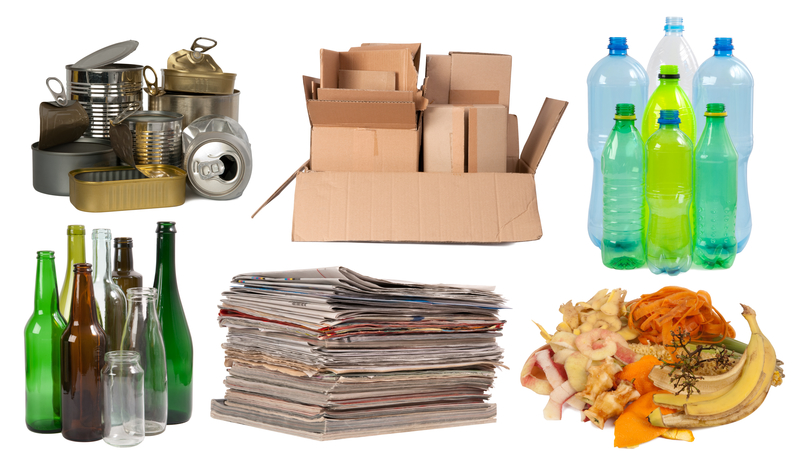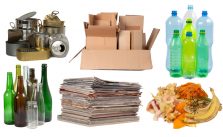 Isn’t it staggering that Americans produce over 254 million tons of trash each year yet only recycle 87 million of it? That comes out to 4.4 pounds of trash each day (per person) or 1,606 pounds each year!
Isn’t it staggering that Americans produce over 254 million tons of trash each year yet only recycle 87 million of it? That comes out to 4.4 pounds of trash each day (per person) or 1,606 pounds each year!
That’s not all because there are five other facts about garbage that will come as a shock. These are guaranteed to have people double thinking about what they throw out and start their journey seeking tips for reducing household waste.
5 Dirty Facts About Garbage (That’ll Have You Cutting Waste)
There are a few, dirty facts about garbage everyone should know besides it being stinky and messy. What’s thrown out has a substantial impact on the health and well-being of the population in ways that don’t always come to mind.
1. Ocean blues
More than 215 million metric tons of plastics ended up in the ocean in 2010. A large part of this being plastic bottles and shopping bags. These become “misplaced” items or illegally dumped. Plastics in the ocean cause contamination in the food supply. The contamination ends up on the dinner menu.
2. It’s here for a long, long time
How long will garbage stay in the landfill and environment?
- Glass: 1,000,000+ years
- Plastic bottles: 1,000+ years
- Aluminum: 80-100 years
- Diapers: 250-500 years
- Paper: 2-6 weeks
- Food: 1-6 months
For other common trash? The list (and years) goes on.
3. Throwing away money
Americans spend more on waste removal than school books, libraries, fire protection, and parks & rec! The World Bank estimates that annual global costs of solid waste management will reach $375 billion by 2025, with America being a leader in this spending.
Costs for waste management goes toward:
- Vehicle fleets
- Employees
- Collection
- Landfills
- Composting
- Incineration
- Local, state, and federal fees
It all adds up!
4. It’s a killer (really)
The most common way to get rid of trash at a landfill is by burning it.
The problem with burning is that garbage gives off dioxins. Dioxins are persistent environmental pollutants (POPs) that cause cancer. POPs also cause reproductive problems, immune system damage, and messes with hormones.
Dioxins find their way into the atmosphere after burning and eventually settled back into the ecosystem when it rains. The vegetation becomes contaminated with these dioxins which are then eaten by animals and end up on dinner plates.
There’s no easy way to avoid dioxins due to consumption habits and the waste people produce. Yet, a balanced diet will help a bit.
5. Not all toys for tots
Although American kids make up only 3.1% of the global child population, the States contributes 40% of the world’s consumption of toys. Children outgrow their love of toys which means more for the landfill. Fortunately, there are international charities that accept toy donations to distribute throughout the world.
It’s a hard pill to swallow knowing the waste created by American families. Especially since child labor remains commonplace in countries that produce toys bought in America.
Feeling uncomfortable about these facts about garbage that you’ve made throughout the years. Need a simple (effective) solution?
Remember the Three R’s
The three R’s are:
- Reduce
- Reuse
- Recycle
Take part in consuming less and find ways to reuse everyday items. Send items to the recycling bin when they apply. If everyone contributes and understands the facts about garbage then this world will be a greener, brighter place for future generations.
